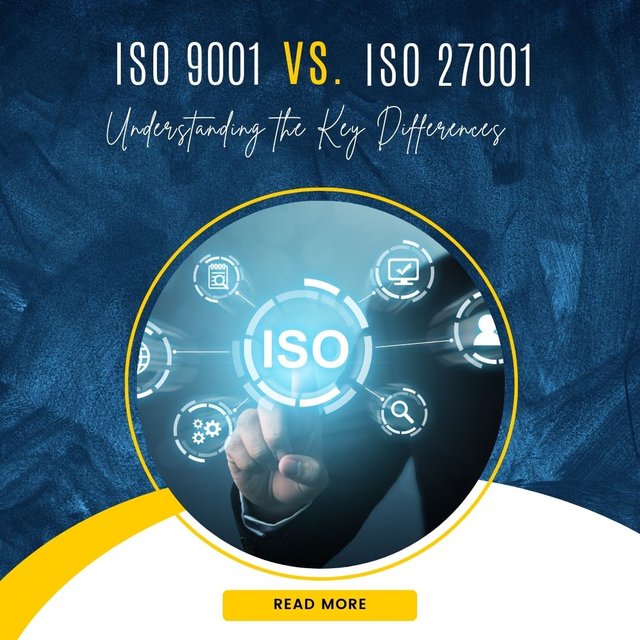
ISO standards play a crucial role in helping organizations achieve excellence in various aspects of their operations. Two widely recognized standards are ISO 9001 and ISO 27001, each focusing on different aspects of organizational management. While both standards are essential for ensuring efficiency and security within an organization, they have distinct objectives, scopes, and requirements. Understanding the key differences between ISO 9001 and ISO 27001 is essential for organizations seeking certification in these areas.
ISO 9001 is a standard that outlines the requirements for a quality management system (QMS). It is designed to help organizations establish and maintain processes that ensure consistent quality in their products and services. The primary focus of ISO 9001 is on customer satisfaction and continuous improvement. Organizations that adhere to ISO 9001 principles strive to meet customer requirements, enhance customer satisfaction, and continually improve their processes to drive efficiency and effectiveness.
On the other hand, ISO 27001 is a standard that focuses on information security management systems (ISMS). It provides a framework for organizations to establish, implement, maintain, and continually improve their information security processes and controls. The primary objective of ISO 27001 is to protect sensitive information and ensure the confidentiality, integrity, and availability of data. Organizations that comply with ISO 27001 guidelines aim to identify and mitigate information security risks, safeguard sensitive information, and demonstrate their commitment to data protection.
One of the key differences between ISO 9001 and ISO 27001 lies in their scope. ISO 9001 applies to all types of organizations, regardless of their size, industry, or sector. It is applicable to both product and service-oriented businesses and focuses on quality management across all aspects of operations. On the other hand, ISO 27001 specifically addresses information security management and is relevant to organizations that handle sensitive information, such as personal data, financial records, or intellectual property.
Another distinction between ISO 9001 and ISO 27001 is their focus on different types of risks. ISO 9001 primarily addresses quality-related risks, such as product defects, process inefficiencies, and customer dissatisfaction. In contrast, ISO 27001 focuses on information security risks, including cyber threats, data breaches, and unauthorized access to sensitive information. While ISO 9001 emphasizes risk-based thinking to improve quality outcomes, ISO 27001 adopts a more comprehensive approach to managing information security risks.
Additionally, the requirements for certification in ISO 9001 and ISO 27001 differ in terms of their specificity and complexity. ISO 9001 certification involves implementing a set of standardized quality management processes and demonstrating compliance with specified requirements. In contrast, ISO 27001 certification requires organizations to conduct a comprehensive risk assessment, develop a tailored set of information security controls, and undergo rigorous audits to verify compliance with the standard's requirements.
In summary, while both ISO 9001 and ISO 27001 are essential standards for organizational management, they serve different purposes and address distinct aspects of operations. ISO 9001 focuses on quality management systems and customer satisfaction, while ISO 27001 emphasizes information security management and data protection. Understanding the key differences between these standards is essential for organizations seeking to enhance their quality and security practices and achieve certification in these areas.